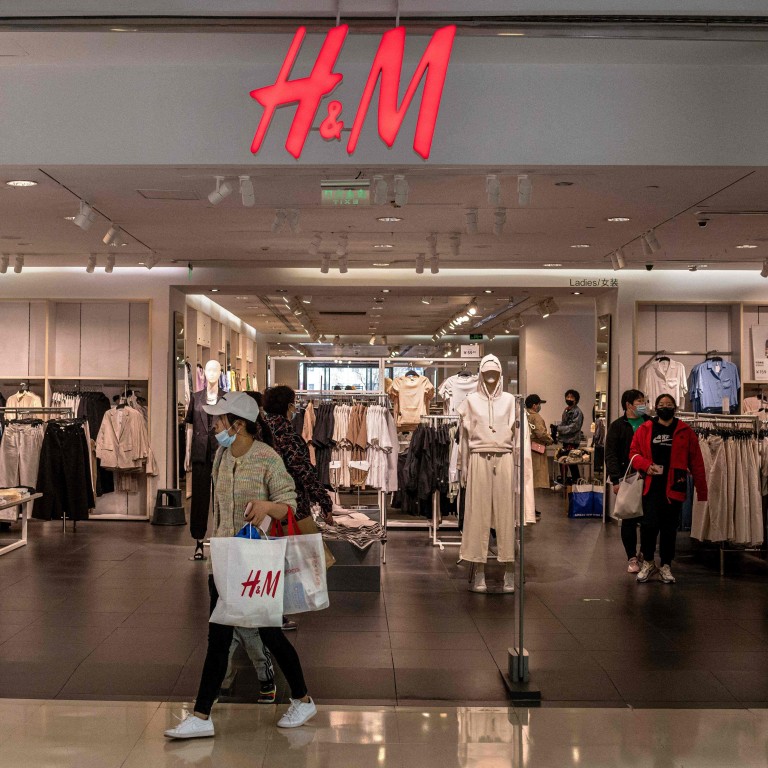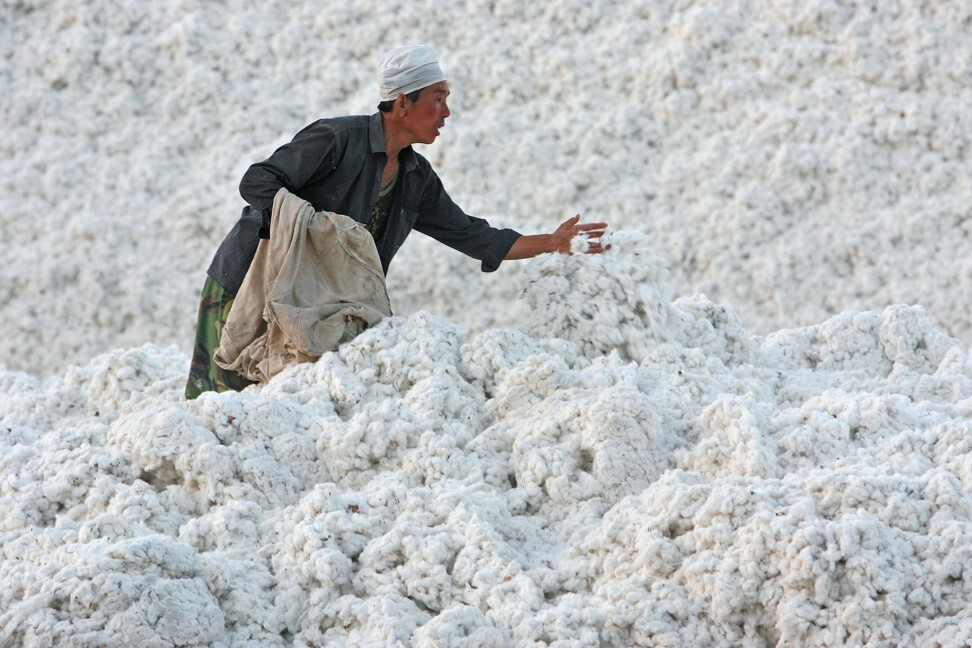
Xinjiang cotton row: Chinese shoppers torn as big fashion labels come under fire
- In Beijing and Shanghai, consumers tell if and how their clothes-buying habits will change because of a row between China and global brands
- Online seller reports a rush on Xinjiang cotton quilts as Chinese buyers support domestic products
Some loyal fans showed no interest in playing a “political game” while other shoppers replaced international brands with domestic products.
On Thursday afternoon, Swedish fashion brand H&M’s brick-and-mortar store in Shimao Tianjie, a shopping centre in east Beijing, was almost empty with no more than 10 customers, although the store manager said business and the flow of customers was normal for a workday afternoon.
“This is a political game between China and the US. Actually, I think H&M is just a victim. It has to pick a side between the Western markets and the Chinese market, and it just picks the former, with larger market share,” said Teresa Bai, 23, who made a special visit to the store in the event it closed.
Regarding online anger, she said consumers should be faithful to their own judgment and not boycott blindly.
“I will just buy what I like,” she said.
China presses global fashion firms to reverse Xinjiang cotton boycott
Another customer echoed those sentiments saying, “It‘s a matter at the national level, and the political issue is too complicated for us ordinary people to understand.”
The customer who did not want to be identified added, “The stores are legally operated in China, and all these shop staff are Chinese people.”

A woman buying a T-shirt from the H&M store in Beijing rushed to leave and explained to a reporter that she would not normally buy H&M products and would “of course” join the boycott.
“But I have to come here to buy a T-shirt to replace one soiled yesterday. I don’t have time to go to another store to pick one up... Do you want to post my purchase online and dis me?”
The shopping centre was alerted to potential confrontation and upgraded its security with patrols inside. Four security guards asked the South China Morning Post reporter to leave the mall and get permission to conduct further interviews, saying it was a “highly sensitive issue” now.
In Shanghai, people were keen to see if there were protests at the store.
‘Name and shame’ strategy in call for boycott of China Winter Olympics
“I won’t buy anything from H&M and I don’t believe in the rumour about forced labour in Xinjiang. I just want to see if there is any boycott activity here,” said Fang Wen, an employee of a US company.
Nike was next. On Wednesday night, the shoe company – which is facing a similar backlash over its Xinjiang statements – was among hot search terms on the Weibo platform.
“As someone born and raised in China, of course I would resist. But my heart is torn because the style is so good, so I am still choosing to buy,” said a young man picking up shoes in a Nike store, also nearly empty, in Beijing.
Some are replacing their fashion needs with Chinese brands.
Shopper Levi, who did not want to use his family name, bought a pair of Huili shoes to support domestic products at Shimao Tianjie, after feeling guilty for buying a pair of Converse.
“I will definitely not buy H&M though, they have no moral bottom line,” Levi added.
On Wednesday, Chinese sportswear maker Anta Sports announced it was quitting the Better Cotton Initiative (BCI), a Switzerland-based cotton organisation, and would continue to use cotton produced in northwest China’s Xinjiang Uygur autonomous region.
The move was welcomed by Chinese users, with some praising it as a Chinese company with “backbone”.
Chinese state media is also pushing for the domestic sale of Xinjiang cotton. Beijing Daily shared an image with the hashtag “I love Xinjiang, I support Xinjiang cotton”.
“I received seven or eight orders for Xinjiang cotton quilts in a short period in the afternoon as people are supporting domestic products,” said a man with surname Wu who runs an online shop selling Xinjiang products.
Additional reporting by Rachel Zhang

